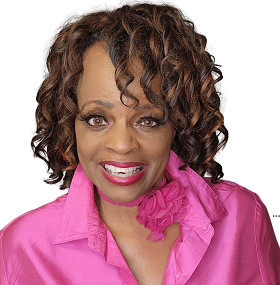Editor’s note: The opinions expressed in this article are those of the author and are not endorsed by the National Association of REALTORS®.
The real estate industry braced for a possible sea change in brokerage liability law when family members of murdered Arkansas agent Beverly Carter sued her company, Crye-Leike, last year. Carter’s husband and two sons, who brought the suit, claimed Crye-Leike failed its duty to provide Carter with adequate safety training and bore responsibility in her death. Brokers had never been legally accountable for the safety of their agents, who are independent contractors. But the case had the potential to set such a precedent—until its dismissal last month. I imagine brokers everywhere breathed a sigh of relief, no longer worried that they may be forced to accept new legal risks or change company policy. But they aren’t completely off the hook just yet.
The judge dismissed the Carters’ lawsuit because it was brought after the statute of limitations had ended—not because he didn’t see merit in the case. So an opening remains for the concept of broker liability in safety matters to be adjudicated in the future. But more than that, Carter’s death prompted an attitude adjustment in the industry regarding safety, and proper training and protocols are now expected of brokers, whether legally enforceable or not. While brokers have yet to be held to specific safety standards by a court of law, they must still answer to the court of public opinion.
I’m a former real estate agent-turned-safety instructor, and my sister has been an agent for nearly 30 years, so I know the difficulty of commission-based sales. I know the most popular training classes are those teaching agents how to make more money—and where does safety fit in with that? But I believe all real estate companies have a duty to provide ongoing, incremental safety training to their agents, regardless of the law. The importance of this can’t be overstated, especially given that the U.S. Department of Labor includes the profession of real estate sales and leasing on its “hazardous occupations” list. Safety training is the best measure we can take to ensure there isn’t another tragedy like Beverly Carter in the future.
What brokers must grapple with is how to make safety a compelling topic in their training. As a safety instructor, I learned to grab agents’ attention by demonstrating how to use information about safe work practices, online safety, and personal safety to make deeper connections with clients. I teach agents that showing clients their safety expertise as it relates to a transaction can inspire greater customer loyalty—which leads to more profit in the long term. This shift in presentation has helped to fill more seats in my training classes.
Safety education is as tough a business as real estate itself. It’s not always exciting, and many agents don’t care about it until something happens that hits close to home. It’s typically not until an attack on an agent makes headlines that brokers and education directors seek to “do something” to prevent another crime against one of their own. Then, there’s a period of complacency until the cycle begins again. One of the most recent attacks occurred in late June in Tulalip, Wash., a quiet community not known for violence. Three visitors to an open house attacked the male listing agent, leaving him with gashes and a broken cheekbone. The fact that the victim was a man may pique local interest in agent safety for a while. But we need to get all real estate pros interested before a crime occurs.
Brokers must learn to be proactive—not reactive—about getting their agents trained on safety. Many believe they’re doing their job by broaching the topic with agents once a year during September, the designated REALTOR® Safety Month. No conscientious person would agree that’s enough. My number one message to brokers and association leaders is that safety may not be legally required, but it must be diligently offered, both because it’s the right thing to do and reduces liability issues.
Qualified and effective training—something that falls squarely on the shoulders of brokers who offer education to their agents—is also crucial to raising safety awareness. I’ve encountered many brokers who haphazardly put together training as an afterthought. They believe a speaker and a Powerpoint presentation do the trick, or they hire police officers and martial artists as experts, believing they are most effective at conveying how safety applies to the real estate industry. These can be important components of an ongoing safety program, but each alone is not enough.
Brokers also would be wise to think more deeply about choosing the right safety instructor to conduct training classes. I tell brokers to imagine they’re being sued for negligence in the case of a victimized agent and to choose a safety instructor they’d trust to take the witness stand on their behalf at trial. That means brokers should thoroughly vet a potential trainer.
Caution: All training is not created equally. Brokers and association education directors must have forethought about what criteria, safe work practices, and up-to-date news and information their safety programs should cover to be effective and actionable. To help define what that is for you, consider the five fundamentals a real estate safety program must have.




